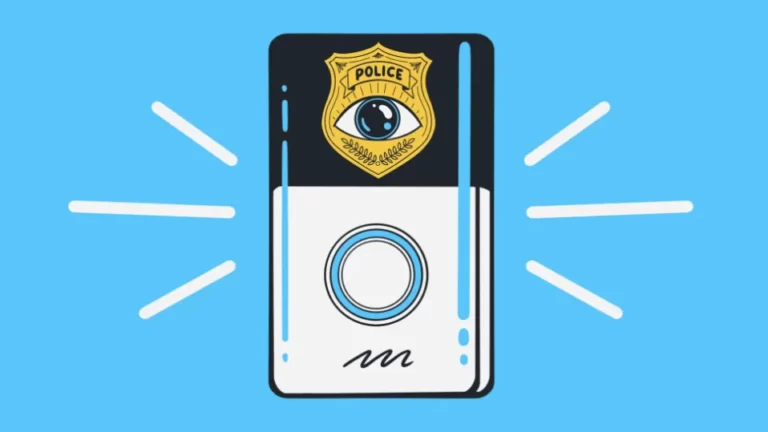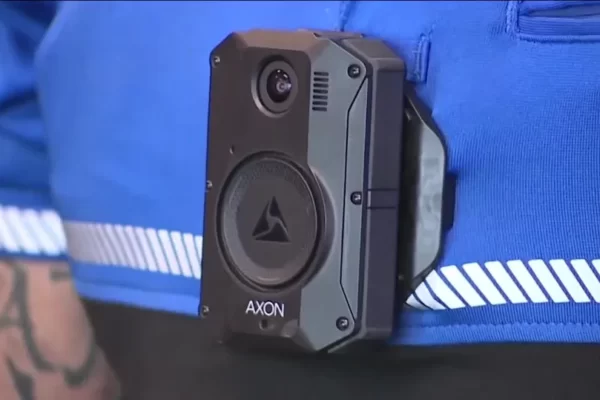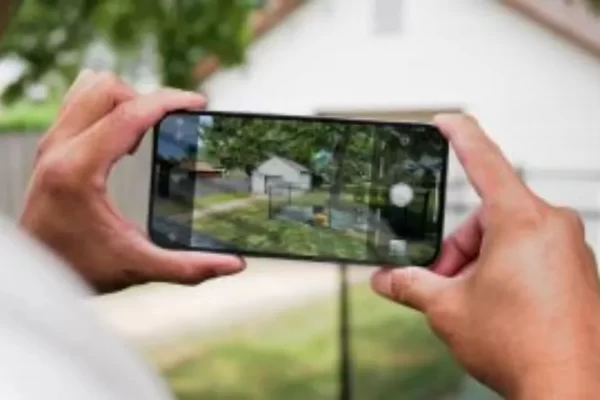With the help of security cameras, we can feel more at ease, learn more about what happens around our home, and make sure that, in the event that something does happen, we have the necessary evidence and footage on hand. Additionally, they may be very practical, especially if they work with other smart home appliances.
But occasionally, we’re not the only ones watching the security camera footage. The manufacturers of the cameras frequently have access to the footage that was captured, which occasionally also means that police do.
If that sounds a little unsettling, it probably is—especially since you might not be sure if police have access to your security footage.
Here are the circumstances in which police can access the security footage you have on them, along with what you can do to prevent it if you want to.
Table of Contents
Do Security Companies Need Your Permission to Share Security Camera Footage?
Depending on your setup and the access the companies themselves have, you may or may not need to give them permission to share recordings. In short, though, if the data is kept on the company’s servers, it’s unlikely that the company will need your consent to share it.
To put it another way, if you use cloud storage for videos, which is a service provided by the majority of well-known security companies like Ring, Eufy, and Arlo, and the data is not end-to-end encrypted, they are free to share your information. Although it doesn’t necessarily imply that they will, it does imply that they have the option to do so.
How Do Police Get Recordings?
Police may need to contact you or the manufacturer of your security camera before they can access your data directly.
In the case of Ring, which runs the Neighbors community service, police can directly ask users through the Request for Assistance feature if they can access footage. Typically, this entails users who are nearby an incident receiving that request.
Users can then comply with the request by providing all security camera footage from a specified timeframe, sharing only specific footage from that timeframe, or declining it. If you do decide to share footage, law enforcement will also receive your email address and home address. This information will be accessible to law enforcement for up to 30 days, though they can download and store it for longer.
It’s important to note that Ring claims law enforcement never has access to live video feeds.
However, police are not required to request assistance from citizens. Instead, they can ask Ring directly for information, and Amazon, which owns Ring, has acknowledged that it does share camera and doorbell footage with law enforcement in an emergency.
But that’s just Ring, you know. Neighbors is a relatively uncommon service offered by security camera companies, and they probably have much more lax rules.
Law enforcement can frequently ask businesses for access to your footage. Others are a little more lenient with their customers’ data than some companies, who may only provide that information if a warrant is in place.
Also Read: How Long Do Security Cameras Keep Footage?
Will a Company Tell Me If They’ve Shared My Data With the Police?
Not necessarily; in fact, it’s unlikely that they will. In order for you to continue using their products, businesses want to make sure you feel secure using their services.
What Can I Do to Prevent the Police from Getting My Security Camera Footage?
There are a few things you can do to stop businesses from deciding whether or not to give the police access to the footage on your behalf, and the majority of those things involve making sure that businesses don’t have access to the footage in the first place.
If police need to access your video in these circumstances, they must come to you personally.
You can choose cameras and doorbells that don’t store video in the cloud as a start.
Local video storage is a feature offered by the security companies Wyze and Eufy, which means that no company servers are used to store the video. There are also local storage options from TP-Link and D-Link.
The good news is that if you use a cloud storage service that offers end-to-end encryption, you can use cloud storage while still maintaining total control. Apple’s HomeKit Secure Video, which saves video to your iCloud account, is a good illustration of this.
Since it is end-to-end encrypted, only the user can access this footage, and Apple cannot access the data even if it wanted to. HomeKit Secure Video is supported by a small number of devices, but that number is expanding.
End-to-end encryption options are also available through Ring. End-to-end encryption is an option that users must choose, but if they do, Ring won’t be able to access the data or share it with law enforcement.
All of the products that Ring currently offers have end-to-end encryption as a choice; however, some of its older products might not have this choice.
Source: reviewed





